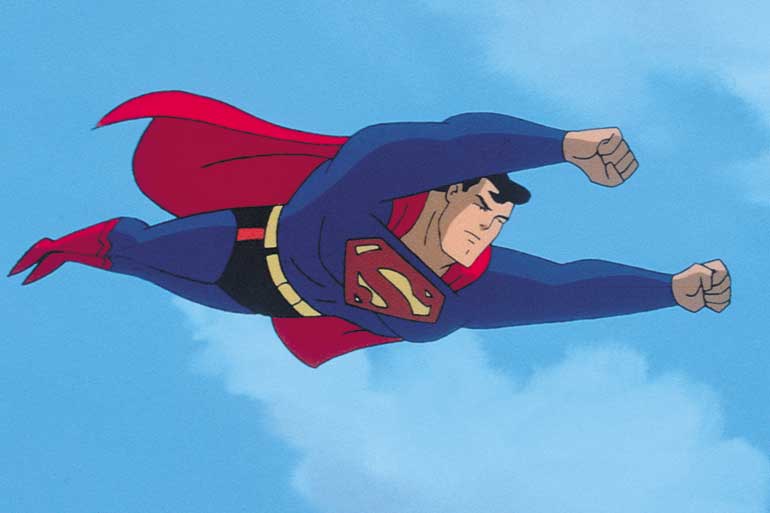“Tarzan was adopted,” I tell my six-year-old son, Alex.
I hand him a videotape box with a man in a loincloth on the cover. “So was Stuart Little.” We make our way down the children’s aisle of the video store.
“They’re just like you,” I say.
“Tarzan was adopted by gorillas,” Alex informs me. “And Stuart Little is a mouse.”
He puts the videos with the adopted heroes back on the shelf. “I want The Phantom Menace.” The box he hands me has a man with horns coming out of his head.
When I was Alex’s age, nobody talked about adoption. The only adopted person I knew was the daughter of friends of my father’s. She was a tall, dark-haired girl who always looked a little out of place next to her short, fair-haired parents. The grownups rarely mentioned the fact that this girl was adopted. They’d wait until after dinner, when they thought we’d gone to sleep, and whisper the word, the way they whispered “divorced” and “cancer.”
All this whispering made me think there was something unnatural and slightly shameful about the adopted girl. Instead of being born like the rest of us, maybe she’d been built by scientists.
My husband and I didn’t want Alex to think that being adopted or talking about adoption was something to be ashamed of. So from the time we brought him home from Moscow, at the age of 16 months, we’ve gone out of our way to mention his adoption.
“Where’d he get that blond hair?” a stranger might ask in the supermarket. “We adopted him,” we’d say, “from Moscow.” “Do you think he’s going to be tall?” someone else would say. “Oh, yes,” we’d nod. “After all, he is Russian.”
Once, when Alex was two years old, he came into my office and started looking through the guidebook we’d taken with us to Russia.
“See this, Alex?” I pointed to a photograph. “That’s Red Square. It’s in Moscow, the place you were born.”
Alex looked at the picture and placed a finger on the people walking along the cobblestones. “Are they all there to get their childs?” he asked, making me realize that he thought Russia was a country of orphaned children.
It’s bedtime, and Alex and I are choosing a story.
“How about if I read Horace?” I say, taking out a book about a spotted leopard who is adopted by striped tigers.
“That’s boring,” he tells me.
“What about this one?” I pull out one of the adoption books I’ve piled onto Alex’s shelves. The cover has a drawing of happy parents beaming at a small child. “At the end there’s a little song about adoption we can sing together.”
“Jeez,” he says, shaking his head.
“How about Peter Pan?”
I show Alex the picture of Peter dueling with Captain Hook, knowing that he is unable to resist anything with swords.
“There’s lots of fighting,” I tell him. “And the Lost Boys get adopted in the end.”
He tosses Peter back on the shelf.
“I want Captain Underpants.”
“I think I’m overcompensating,” I tell my friend, Wendy, who has a biological son and an adopted daughter. “I think I’m bringing up the subject of adoption with Alex a little too much.”
She pours me another cup of tea.
“You know,” she says, “just the other day somebody asked me which one of my kids was real.”
“Would you like to have a play date with Xi Xi?” I ask Alex that afternoon when I pick him up from school. “You know she’s adopted, too.”
“Xi Xi is a girl,” he says. He looks disappointed in me.
That’s it, I think, I’m backing off. And for the next several days I resist telling Alex that the reason he can beat the pants off me in chess is because he’s Russian. I refuse to point out that Pinocchio was adopted, and I do not once offer to read him David Copperfield.
A day or so later, I’m driving Alex and his new friend, Aidan, to our house for the afternoon.
“You’re adopted, aren’t you?” I hear Aidan ask Alex in the back seat.
I lean back, listening for anything that might resemble shame or embarrassment in Alex’s voice.
“Yeah,” he says. He sounds so matter-of-fact, they could be talking about anything. I find his face in the rearview mirror. He’s wiggling a loose tooth with his tongue.
“Wanna see my stegosaurus?” Aidan asks him.
When we get to the house, the two boys leap out of the car and run inside.
“I’m going to show Aidan my Harry Potter game!” Alex says. They race up the steps.
“Okay,” I say, picking up their lunch boxes and jackets.
Then, just before they disappear into Alex’s room, I stand at the bottom of the stairs and shout up at my son.
“Did you know that Harry Potter was adopted?”



